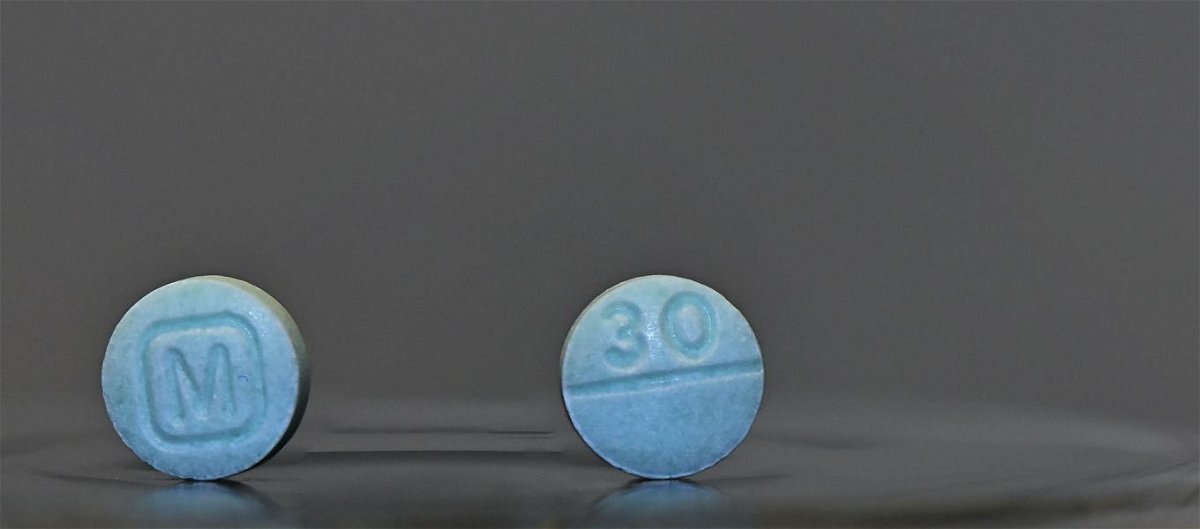‘My son was poisoned’: Texas mother describes losing son to fentanyl epidemic

TARRANT COUNTY, Texas (KTVT) — On a hot night in mid-July, Stephanie Hellstern got home late from work after picking up dinner for her 16-year-old son, but she couldn’t find him.
She knew Kyle was home. She had checked the location of his phone and aside from it showing he had gone down the street earlier, he was back at the house.
She checked his room, her room, the garage, called him, but didn’t get an answer. Something in her head told her to look outside.
Just outside the back door, on the porch, her only son was slumped over, not breathing and hot to the touch.
“We’re all trying to guess what happened, why this would happen, did he have a heat stroke? What happened?” she said later.
It would be four months before she saw the autopsy report. Cause of death: fentanyl intoxication.
Hellstern went straight to the computer, not knowing what fentanyl was.
“I realized I wasn’t alone,” she said. “And it’s happening everywhere.”
After being largely confined to the eastern United States for years, fentanyl has exploded west to the extent some health professionals have called it a second pandemic.
A synthetic drug up to 100 times more potent than morphine. It is used by drug cartels to mimic authentic prescription pain pills like oxycodone.
However, just 2 milligrams of fentanyl can be a fatal dose for some individuals. The dosage of the fake pills is often inconsistent, leading to the phrase “one pill can kill” used often by law enforcement and drug awareness organizations.
Experienced opioid users who might take two or three authentic pills could end up ingesting a fatal dose of fentanyl, if they took that many counterfeit pills.
Where Hellstern lives in Tarrant County, the number of deaths with fentanyl listed as a contributing cause, jumped from nine in 2019 to 95 in 2020.
During the pandemic the county recorded 10 deaths of people aged 24 and under related to COVID-19. County data shows 40 deaths in that same age group, related to fentanyl.
In Dallas County, records obtained by CBS 11 News show an 11-year-old child died last year connected to fentanyl. In a recent awareness event in Tarrant County that was streamed online, a paramedic said crews had recently responded to a nine-year-old who had ingested the drug.
Jermy Prescott with the Fort Worth Police Department is assigned to a task force that now works only a fentanyl cases.
“Pretty much every drug dealer that we’re dealing with now, is selling these pills,” he said.
There are more cases currently he said, than law enforcement has the ability to investigate. In the cases they do look at, their goal is to trace the pill that results in an overdose back to the source.
In April, the same day a teenager died in Parker County, believed to be from ingesting a quarter of a fentanyl pill, detectives said they traced the purchased back to Ashton Bronson and arrested him the next day.
However with a generation that buys and sells the drug often using social media apps, finding leads and tracking purchases can be difficult.
“Parents don’t have the password to get in their kids phone, or the password for social media apps,” Prescott said. “Then we may not even know who they were talking to, or who they possibly purchased it from or who gave it to them.”
Hellstern admits she was shocked after digging into her sons phone after his death. She followed him on social media apps, but didn’t know what he was seeing from people he was connected to.
She knew he had tried drugs before. He had gotten into some trouble at school. He’d stopped playing sports. He had started changing what he was wearing. He was always still respectful though, and she didn’t want to be too heavy handed.
“I kind of realized he was kind of living a double life,” she said.
Hellstern is now actively working to make more families aware of the danger. Signs posted in the front yard of her Fort Worth home advocate for criminal investigations for every death. She refers to the deaths not as overdoses, but homicides.
In Kyle’s case, she still doesn’t know where he got the pills, or if anyone was with him that night. No one was ever arrested.
“This isn’t just an overdose, this is poison,” she said. “My son was poisoned.”




